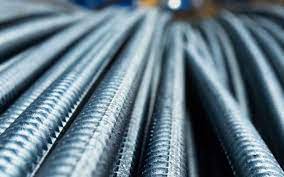Are you considering a career in the steel and iron ore industry? If so, this article is for you.
It explores the importance of skill development, different career paths, and the demand for professionals in this field. You’ll gain insights into the key skills and qualifications needed for success, as well as how to navigate challenges and seize opportunities.
Plus, we’ll discuss the potential for advancement and growth in this dynamic industry.
Get ready to forge ahead in your career.
The Importance of Skill Development
Skill development is crucial for individuals pursuing a career in the steel and iron ore industry. In this fast-paced and ever-evolving field, honing your skills is the key to staying competitive and advancing in your career.
By continuously improving your abilities, you can adapt to new technologies, processes, and market demands. Whether you are working in production, engineering, or management, having a diverse set of skills will make you a valuable asset to any company.
It is important to invest time and effort in learning and acquiring new skills, such as metallurgy, quality control, and project management. By doing so, you will not only enhance your employability but also increase your chances of securing higher positions and better opportunities in the industry.
Exploring Career Paths in the Steel and Iron Ore Industry
You can discover various pathways to pursue within the steel and iron ore sector. With the ever-growing demand for steel products, there are numerous opportunities for career growth and development.
One option is to work in production and operations, where you can oversee the manufacturing process and ensure the smooth running of the facilities.
Another pathway is in research and development, where you can contribute to the innovation and improvement of steel production techniques.
If you have a passion for sustainability and environmental conservation, you can explore opportunities in environmental management within the industry.
Additionally, there are roles in sales and marketing, where you can promote and sell steel products to various industries and clients.
The steel and iron ore sector offers a wide range of exciting career paths, allowing you to find a role that aligns with your skills and interests.
Understanding the Demand for Steel and Iron Ore Professionals
With the growing need for steel products, there’s a high demand for professionals in the steel and iron ore sector. Companies are constantly on the lookout for skilled individuals who can contribute to the production, processing, and distribution of steel and iron ore. Whether you have expertise in engineering, mining, logistics, or sales, there are numerous opportunities available.
By joining this sector, you can be part of a dynamic and evolving field that plays a crucial role in infrastructure development and economic growth. With the right qualifications and experience, you can secure a stable and rewarding career in the steel and iron ore industry.
Key Skills and Qualifications for Success in the Industry
Now is the perfect time to explore the qualifications needed for success in this growing sector.
In order to thrive in the steel and iron ore industry, there are several key skills and qualifications that you should possess.
Firstly, a strong educational background in engineering or a related field is essential. A solid understanding of metallurgy, materials science, and process engineering will give you a competitive edge.
Additionally, proficiency in data analysis and computer-aided design software is becoming increasingly important in this technology-driven industry. Strong problem-solving and analytical thinking skills are also crucial, as you will often be faced with complex challenges that require innovative solutions.
Finally, effective communication and teamwork skills are essential, as you will be collaborating with professionals from various disciplines.
Navigating Challenges and Opportunities in the Steel and Iron Ore Industry
To successfully navigate the challenges and opportunities in this sector, it’s crucial to stay updated on the latest technological advancements and industry trends. The steel and iron ore industry is constantly evolving, and staying informed is key to staying ahead.
Keep an eye on new developments in automation and artificial intelligence, as these technologies are transforming the way things are done. Additionally, stay informed about market trends and shifts in demand, as these can greatly impact the industry.
Networking and building relationships with key players in the field is also essential. Attend industry conferences and events, join professional organizations, and engage in online communities to stay connected and informed.
Advancement and Growth Potential in the Field
Staying updated on the latest advancements and industry trends is crucial for professionals looking to seize growth opportunities in this field.
As technology continues to evolve, the steel and iron ore industry is witnessing significant advancements that are reshaping the way business is conducted. Automation, artificial intelligence, and data analytics are revolutionizing processes and improving efficiency in the industry.
By staying informed, you can tap into the potential for career advancement and growth that these advancements bring. As a professional in this field, you need to adapt to these changes and acquire the necessary skills to work with these technologies.
Additionally, keeping an eye on industry trends allows you to identify emerging markets and diversify your expertise, making you a valuable asset to potential employers.
Embrace the opportunities, stay informed, and position yourself for success in this ever-evolving industry.
Frequently Asked Questions
What Are the Current Market Trends and Projections for the Steel and Iron Ore Industry?
The current market trends and projections for the steel and iron ore industry are constantly changing. It’s important to stay updated and adapt to new developments to ensure success in your career.
How Does the Steel and Iron Ore Industry Contribute to Global Economic Growth?
The steel and iron ore industry contributes to global economic growth by providing essential materials for construction, manufacturing, and infrastructure projects. It creates jobs, stimulates trade, and drives technological advancements.
What Are the Environmental and Sustainability Challenges Associated With the Steel and Iron Ore Industry?
The environmental and sustainability challenges associated with the steel and iron ore industry include air and water pollution, deforestation, and greenhouse gas emissions. It’s essential to address these issues to ensure a sustainable future.
What Are the Potential Risks and Safety Concerns for Professionals Working in the Steel and Iron Ore Industry?
Working in the steel and iron ore industry comes with potential risks and safety concerns. It’s important for professionals to be aware of hazards like heavy machinery, high temperatures, and exposure to harmful substances.
How Is Technology and Innovation Impacting the Steel and Iron Ore Industry, and What Skills Are Becoming More Important as a Result?
Technology and innovation are transforming the steel and iron ore industry. As a result, skills like data analysis, automation, and problem-solving are becoming more important. Embrace these changes to stay relevant in the field.
Conclusion
In conclusion, you’ve learned about the importance of skill development in the steel and iron ore industry.
You’ve also explored various career paths, understood the demand for professionals, and identified key skills and qualifications for success.
Despite the challenges, there are opportunities for growth and advancement in this field.
So, keep forging ahead and seize the potential that this industry has to offer.


